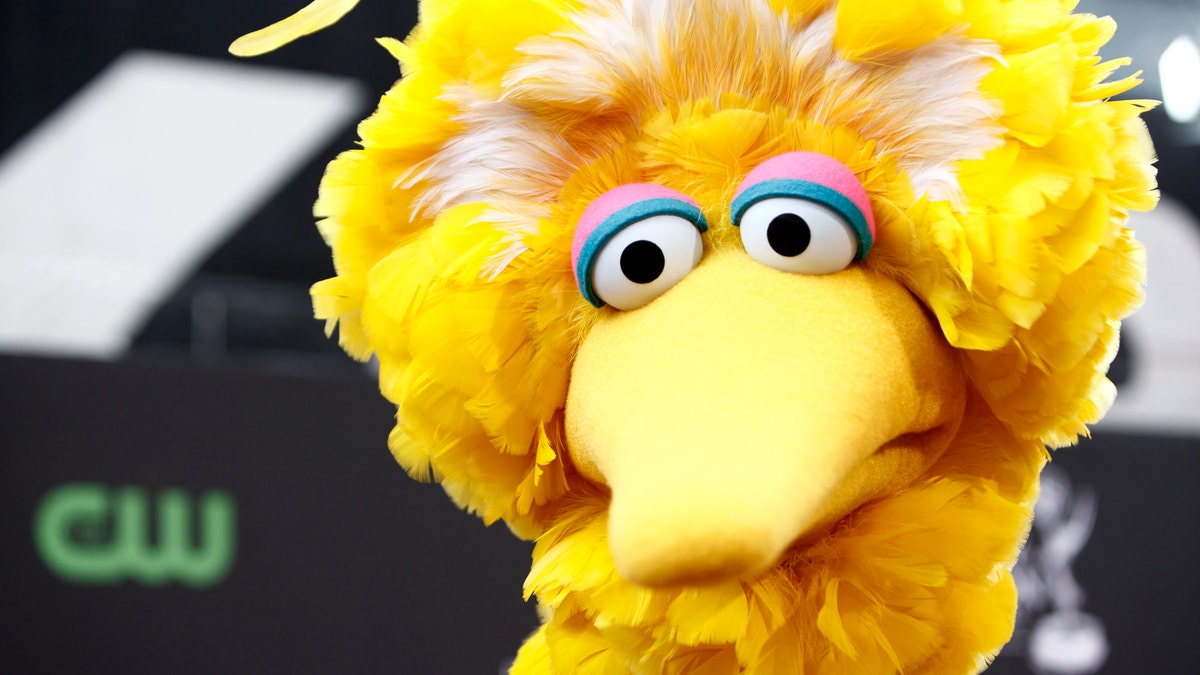
Big Bird, of the children's television show Sesame Street, in Los Angeles. (AP Photo/Matt Sayles, File)
WASHINGTON – Nowhere was the consensus more clear on the outcome of Wednesday’s presidential debate than social media.
While the 90-minute sparring match spurred a variety of reactions, three things were made abundantly clear: Big Bird is endangered, Jim Lehrer lost control and Mitt Romney crushed President Barack Obama.
It was the first presidential election since the growth of sites like Twitter and Facebook, and the debate solidified how social media has changed the landscape of interaction.
Until recently, debate watchers would have waited through the entire broadcast to hear analysis and reaction from a small cadre of television pundits.
Social media has democratized the commentary, giving voice to a far wider range of participants who can shape the narrative long before the candidates reach their closing statements.
"People still use old media to watch the debates, but they use social networks and other new media to have influence, voice opinions and be involved," Scott Talan, an assistant professor of communication at American University who studies social media and politics, said.
"Old media is not dead; it's growing. But now we have more people involved and engaged because of digital means."
Reflecting the changing times, many television analysts now monitor Twitter and Facebook feeds and use information gleaned from those platforms to inform their punditry.
People still use old media to watch the debates, but they use social networks and other new media to have influence, voice opinions and be involved.
The debate focused on domestic issues with a numbers-heavy discussion of the economy, debt and entitlement reform that produced strong reactions on Twitter from its earliest moments. The debate became the most tweeted event in political history.
However for Latinos, it was what the candidates weren’t talking about that got the most buzz.
Many were baffled by the fact that not only was mediator Jim Lehrer seemingly ignored but issues like immigration and Romney’s “47 percent” comment did not even get a mention.
Reporter Russell Contreras tweeted,”#BigBird getting more run than #poverty #immigration on twitter from #debate2012.”
Big Bird became a huge hit on Twitter -- and several mock Twitter handles were immediately created -- after Romney said he would eliminate PBS funding, even though he loved the famous feathered giant. That created a big splash on Twitter with many coming to Big Bird's defense.
During a lull in the debate, an ABC news executive tweeted, "avian life is outstripping human life in this debate."
Unlike the wider viewing audience, debate watchers who comment on social media "are politically engaged in the strongest possible way," Powers said. But, he added, "it's a bit of a hothouse population. It does skew younger, and I'm not sure how much middle America is represented."
Twitter announced shortly after Wednesday's debate that it had been the most tweeted event in U.S. political history, topping this year's Republican and Democratic National Conventions.
Twitter scored Romney the debate's clear winner according to Peoplebrowsr, a web analytics firm. The group found 47,141 tweets mentioning Romney and "win or winner" compared to just 29,677 mentioning Obama and "win or winner."
Andrew Sullivan, a pro-Obama writer for the Daily Beast whose Twitter feed, Sullydish, has a loyal following, declared, "This was a disaster for the president."
With 11.1 million comments, Wednesday's debate was the fourth most tweeted telecast of any kind, coming in just behind the most recent Grammy awards, MTV's Video Music Awards and the Super Bowl, according to William Powers, director of the Crowdwire, an election project of the social analytics firm Bluefin Labs. The project found 55 percent of the social comments about the debate were made by women, 45 percent by men.
With reporting by the Associated Press.
Follow us on twitter.com/foxnewslatino
Like us at facebook.com/foxnewslatino
